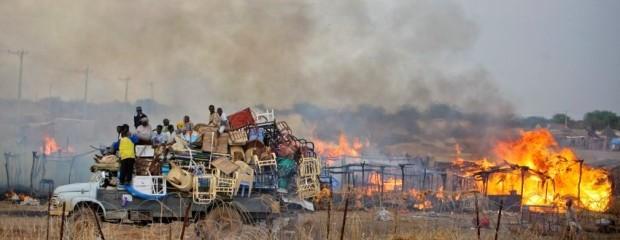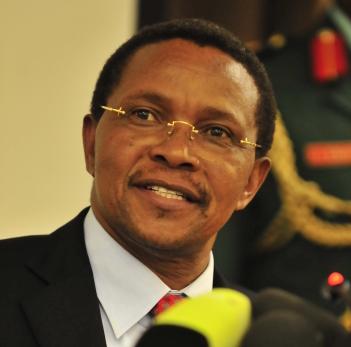Insecurity in northern Kenya: is the government losing its grip? – By Nuur Mohamud Sheekh and Jason Mosley

In an article for African Arguments in November 2012 in which we discussed the violence in the Tana Delta — we argued that “…the Tana Delta violence highlights precisely the type of political and social fault lines that may be at risk of erupting in the run up to, and aftermath of, the elections in a number of areas.”
Since the March 2013 elections, inter-ethnic violence has erupted in at least three populous counties of northern Kenya — including Mandera, Marsabit, and Samburu. Yet, despite these worrying trends, the Kenyan government and its partners are still fixated largely on the outcome of the elections and on the cases against President Uhuru Kenyatta and Deputy President William Ruto. This risks overlooking the potential for the prevailing insecurity to lead to state fragility. After momentarily gripping national attention, even the September 2013 attack on the Westgate shopping mall seems to have fallen from the government’s priority-list — despite its massive implications for the economy and security.
Mandera
In the conflict in Mandera post-March 2013, some 25,000 people were displaced and about 200 were killed as a result of inter-ethnic violence. Wanton destruction of property was also reported. The cause of the conflict between the Garre and Degodia is often attributed to competition over access to resources. However, the devolution of governance to new county structures — in a context where the two groups are fighting over political resources — has execrated the problem. Even though the political elite of the two warring communities has signed a truce, the fault line remains and is likely to erupt again. Mandera country borders Ethiopia and Somalia and the availability of small arms and the porous nature of the border should concern Kenya’s security apparatus. Indeed, the Kenyan government deployed troops to the area in September, in an effort to contain the violence.
Marsabit
Election-related ethnic alliances in Marsabit County just prior to 2013 elections and after, erupted into violence in the already volatile district. The violence pitted the Borana on the one hand and an alliance of the Gabra, Rendille and Burji (ReGaBu) on the other. The ReGaBu alliance was formed a few months before the elections with the sole purpose of locking out the majority Boran from elective posts and administration of the new county (see this press statement by Moyale MP Roba Duba from September.) The alliance won all the high profile positions, including governor, senator, and women’s representative. The violence that took place in December 2013 displaced an estimated 30,000 people and led to the loss of lives. A number of houses were torched as well.
Proximity to the Ethiopian border has been a factor in the dynamics of the region for decades (groups such as the Boran and Gabra have cultural ties stretching across the border), with groups using the border as an outlet (reflected in recent displacement) or rear-base for militias. More worryingly, the Moyale conflict has drawn in allegations and counter-claims about the involvement of the Oromo Liberation Front (OLF) — an Ethiopian rebel group. The Boran have refuted claims that the OLF were involved, claiming rather that they themselves have been targeted by the Ethiopian and Kenya militaries for allegedly supporting the OLF (their co-ethnics).
Northwest
In the resource rich northwest Kenya — specifically in Turkana County — conflict between Tullow Oil and the local communities over employment led to the temporary closure of the operations of the exploration company in late October. Grievances centred on allegations of bias against “˜locals’ in the firm’s hiring practices. Although exploration work has begun, the unrest illustrates that local expectations of the benefits that will flow from the oil sector already far exceed the realities of the sector, and point to questions about the ability of government (national or county) to manage those expectations adequately as exploration continues.
Beyond the borders
The fact that the oil-rich Turkana region borders South Sudan is cause for further concern. The longer the conflict there continues without resolution, the greater the risks of instability spilling over the border into an already volatile area — most likely in the form of refugees, whose needs could be a cause for strain with other local communities.
Kenya’s continued intervention in Somalia is another source of instability, and not only in the north. This was most spectacularly manifested in the Westgate attack. However, smaller scale violence has continued in parts of northern Kenya, especially attacks (presumably by militants allied with Somalia’s al-Harakat al-Shabaab al-Mujahidin) on police or local government offices — Garissa has been particularly frequently targeted. The December bombing of a minibus in Nairobi’s Eastleigh district appears similarly to have been linked to the Somalia intervention.
Kenya‘s attention?
Meanwhile, Kenya’s presidency and the political elite are preoccupied with the ICC cases and with infighting within the Jubilee Alliance over political power-sharing. The political situation in Somalia and the IGAD-mediated process in South Sudan are also diverting policy attention and resources from the security situation at home.
While northern Kenya features prominently in the country’s “˜Vision 2030′ economic blueprint, which the Jubilee Alliance has moved to strongly associate themselves, the government is sending conflicting signals. On the one hand, policy attention and resources are unquestionably being turned to northern Kenya, which marks a significant shift in the region’s political significance to the country overall. The envisaged transport and logistics corridor, LAPSSET, which would connect a new Kenyan port at Lamu to the South Sudanese and Ethiopian markets, involves major new projects at key urban centres across northern Kenya.
Nevertheless, continued insecurity fuels the perception that many politicians in Nairobi remain more concerned with the economic opportunities — licit and illicit — associated with the projects than the welfare of the population in a region that is woefully underdeveloped, even by Kenyan standards. Kenyatta’s recent appointment of a veteran political insider, former Civil Service chief Francis Muthaura — a powerful political ally of the Kenyatta family since the 1970s, and former ICC co-accused with the president — to head the LAPSSET project has doubtless reinforced such perceptions.
Northern voting blocs were crucial to the Jubilee victory, and Kenyatta’s win in particular — for which he owes much to Ruto’s successful deal-making in the region, most strikingly in Mandera (an excellent analysis of these bargains by Neil Carrier and Hassan Kochore is forthcoming in the February 2014 issue of the Journal of Eastern African Studies). Thus, not only is the region’s vulnerability to continued conflict a source of concern in humanitarian and welfare terms, but it also links directly to the political alliance at the heart of this government. Continued government failure to address insecurity across the region therefore carries significant political risk.
Nuur Mohamud Sheekh is the Nairobi Forum Programme Coordinator for the Rift Valley Institute, but this article reflects his personal views not those of RVI.
Jason Mosley is a Research Associate of the African Studies Centre at Oxford University, also writing in his personal capacity.






